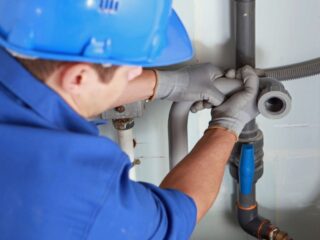
Selecting the right water heater for your home can be a challenging task. With various options available, it is important to comprehend their functionalities and suitability for different needs. This guide will help you make an informed decision by exploring different water heaters and their applications.
When it comes to choosing a water heater, there are numerous factors to consider. The type of water heater you select will impact your energy efficiency, utility costs and overall comfort. Understanding the differences between various water heaters is crucial for making an educated choice that aligns with your household requirements.
Storage Water Heaters
Storage water heaters are one of the most common types found in households. These units store a large volume of heated water in an insulated tank, ready for use at any time. The capacity of these tanks can range from 20 to 80 gallons or more, depending on the needs of the household. While they are generally reliable, one downside is the energy required to maintain the stored water at a consistent temperature.
An advantage of storage water heaters is their ability to supply hot water simultaneously to multiple outlets, such as showers and sinks. However, this type of heater may not be suitable for homes with limited space due to the size of the tank. It is also essential to consider the recovery rate – how quickly the heater can refill with and reheat cold water after use.
For those seeking an alternative with potentially lower energy costs, tankless water heaters offer a solution that heats water on demand without storing it. These units can be more energy-efficient but might require a higher initial investment.
Tankless Water Heaters
Tankless water heaters are becoming increasingly popular due to their energy efficiency and compact design. Unlike storage water heaters, these units heat water only when it is needed, which can lead to significant energy savings. This makes them an excellent choice for homeowners looking to reduce their carbon footprint.
It is crucial to assess your household’s hot water demand before opting for this type of heater to ensure it meets your needs adequately as tankless systems often require professional installation and may need upgrades to existing plumbing and electrical systems, which can add to the overall cost. Many find that the long-term savings on energy bills justify any initial expense.
Heat Pump Water Heaters
Heat pump water heaters (HPWHs) are another energy-efficient option worth considering. These units operate by transferring heat from the surrounding air or ground into the water, rather than generating heat directly. This process makes them significantly more efficient than traditional electric or gas-powered storage heaters.
HPWHs generally have higher upfront costs compared to conventional systems but can offer substantial savings over time due to their lower operating expenses. They also tend to have a longer lifespan, making them a valuable investment for many homeowners. However, it is important to note that these units may not perform as efficiently in colder climates where ambient temperatures are low.
Solar Water Heaters
Solar water heaters harness energy from the sun to heat your home’s water supply, making them an eco-friendly choice with minimal operational costs. These systems usually consist of solar collectors installed on the roof and a storage tank that holds the heated water. Depending on your location and solar exposure, these systems can significantly reduce your reliance on conventional energy sources.
While solar water heaters can provide considerable long-term savings and environmental benefits, they come with higher installation costs and rely heavily on weather conditions. In regions with less sunlight, supplementary heating methods might be necessary during cloudy periods or winter months.
Wrapping Up
Selecting the right type of water heater depends on various factors including your budget, space availability, hot water demand, and environmental considerations. By understanding the advantages and limitations of each type, you can choose a system that best meets your household’s needs and contributes to overall efficiency and comfort.














